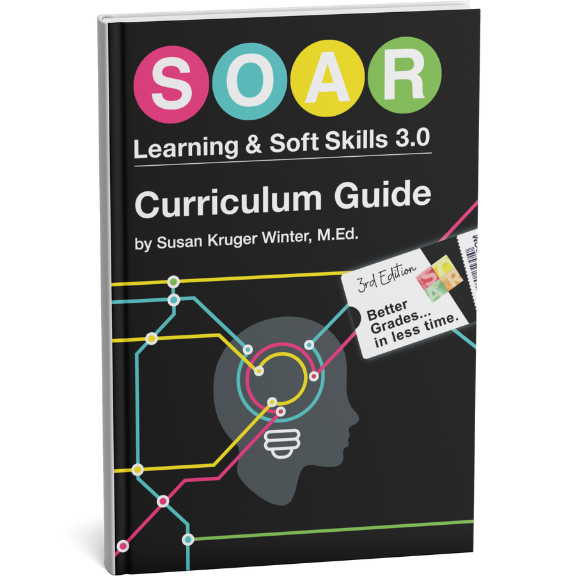Study Halls: Where They Go Wrong
Study hall…
Students hate it….
Teachers hate it more… (Okay, a couple of you like it… but most of you don’t.)
Why? Because most study halls don’t work!

Giving students more time to utilize poor approaches to learning, doesn’t improve results.
Recently, we’ve had conversations with several schools about “Study Hall.” All of them expressed frustration over lack of results.
From these conversations, two common themes have emerged:
- Extended time for school work is not producing results.
- They all agree more structure is needed, but teachers struggle to assemble an effective curriculum on their own.
Problem #1
When students have a “Study Hall”, they tend to complete less work in their other classes. Students will express this in the form of, “Oh… I’ll do that in Study Hall.” But, as you can imagine, this work isn’t completed in Study Hall either. The demands of organization, reading for information, taking notes, etc. are overwhelming to students.
It’s easy to assume providing more time to complete work will lead to students getting more done.
However, giving students more time to utilize poor approaches to learning, doesn’t improve results. Until students adopt effective learning strategies, nothing will change.
When students know how to learn effectively, they do it! It goes against human nature to intentionally fail.
Not completing work is the symptom, not the problem.
Problem #2
“Wow, there is already a curriculum for this?!” This was the most common remark we heard from attendees at the Council for Exceptional Children Conference. From there, teachers described how they gathered “this tip,” “that skill,” and “this strategy” from a variety of resources for their study hall/learning strategies class. We asked, “How is that working for you?” the response was, at best, “Meh.”
We commend those teachers who recognized the need to teach learning strategies. Recognition of the real problem is half the battle.
However, building a curriculum from a multitude of sources could be compared to remodeling your kitchen by using five different contractors. Then, hoping they all have the same end-goal in mind.
What’s the Solution?
Using a comprehensive learning strategies curriculum. Teachers that utilize a comprehensive curriculum have a strategic approach to solving the inadequacies of Study Hall.
A comprehensive curriculum:
- Explicitly teaches: organization, time-management, communication, and study skills…
- …while providing time to apply those skills with some guidance.
- Ensures attributes of one skill does not conflict with another.
- Is presented in a logical order.
- Provides the teacher with a game-plan.
- Assesses students understanding.
- Collects student data to evaluate effectiveness of the program.
- Has proven results.
Good news!
That curriculum exists. StudySkills.com has created a curriculum to address the typical challenges surrounding Study Hall.
Our curriculum is proven to raise GPAs by more than one full point.
Would you like to learn how inexpensively you and your students can access our curriculum? Simply contact us.
Sincerely,
Brian Winter, M.Ed.
Co-Author of SOAR Social Emotional Learning Skills
Six Steps
Conquer the Chaos
Get Our Free Guide & Information on...
 How to Organize & Motivate Students for Success
How to Organize & Motivate Students for Success
"*" indicates required fields
Get Our FREE Curriculum Guide!
The SOAR® Curriculum
The most critical learning, organizing, and communication skills needed for school. Learn more here.
Who’s Using SOAR®?
SOAR® Guarantee
Click here to learn more.




